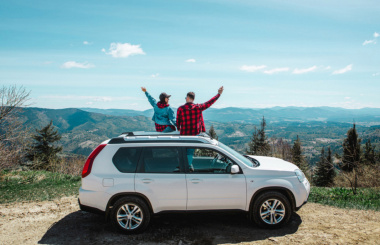Let’s take a look at the ins and outs of auto insurance for ride-sharing drivers.
Ride-sharing services like Uber and Lyft have become increasingly popular in recent years, offering a convenient and affordable transportation option for passengers. However, if you're a ride-sharing driver, it's important to understand the insurance implications of using your personal vehicle for commercial purposes.
One important thing to note is that ride-sharing insurance is not required by law in all states. However, it's still important to consider investing in it as it can provide valuable coverage and protection in the event of an accident. Additionally, some ride-sharing companies may require their drivers to carry specific insurance coverage, so it's important to read the terms and conditions carefully before signing up to be a driver.
Personal Auto Insurance vs. Ride-Sharing Insurance
When you're driving for a ride-sharing service, your personal auto insurance policy may not provide adequate coverage in the event of an accident. Most personal auto insurance policies exclude coverage for commercial activities like ride-sharing, leaving gaps in your coverage that could leave you financially vulnerable. That's why it's essential to consider purchasing ride-sharing insurance to fill those gaps.
Ride-sharing insurance policies typically provide coverage for both the period when you're waiting for a ride request and when you're transporting passengers. In some cases, your ride-sharing company may offer insurance coverage during these periods, but it's important to read the fine print and understand the limits of that coverage. Investing in your own ride-sharing insurance policy can give you peace of mind and protect you from potential financial losses.
Factors to Consider When Choosing Ride-Sharing Insurance
When shopping for ride-sharing insurance, there are a few key factors to consider. First, make sure the policy provides coverage for all three periods of ride-sharing: when you're driving with the app off when you're waiting for a ride request, and when you're transporting passengers. Additionally, look for a policy that provides adequate liability coverage to protect you in the event of an accident.
Another vital factor to consider is the cost of the policy. Ride-sharing insurance can be more expensive than personal auto insurance, so it's important to compare rates from multiple providers to find the best deal. Keep in mind that while a lower premium may be attractive, it's important to make sure the policy provides adequate coverage to protect you and your passengers.
Summary
As a ride-sharing driver, it's important to understand the insurance implications of using your personal vehicle for commercial purposes. Personal auto insurance policies may not provide adequate coverage, leaving gaps in your coverage that could leave you financially vulnerable. By investing in ride-sharing insurance, you can protect yourself and your passengers from potential financial losses. When choosing a policy, make sure to consider factors like coverage, liability limits, and cost to find the best option for your needs.







Updated May 16, 2023